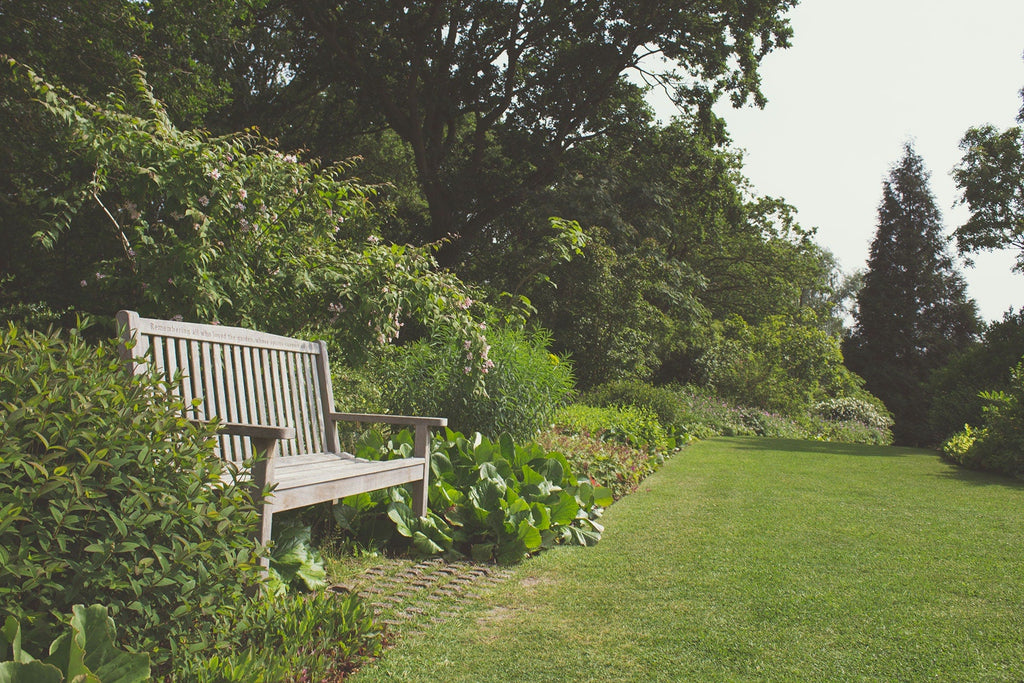Glamour without Graft
We Kiwis love our gardens. Apparently, gardening itself is still one our most popular pastimes. However, despite surveys suggesting the contrary, more and more of us are opting for the 'do-it-for-me' approach. We want our homes to look as smart and stylish on the outside as they do indoors, and increasingly, we're just as happy to pay for the professional prowess we need to achieve the desired effect.
Gardeners or not, one thing's for sure. An attractive outdoor living space is more sought after than ever, recognized as adding value to both lifestyle and capital assets. Home owners and property developers alike are beginning to see that scrimping on the landscaping budget is false economy.
Meanwhile, busy lives leave less time for garden maintenance which, on the face of it, narrows the choice to those plants which are the most successfully self-sufficient. But low maintenance gardens need not be tediously predictable. There are thousands of reliable plant options, and unlimited scope for their imaginative use.
Planning for Low Maintenance
Simplicity is key to an impressive yet low maintenance garden. Stick to clean bold curves and straight lines and avoid using too many different materials. The minimalist mantra 'less is more' is worth remembering, especially when space is limited.
Limit the palette to a small variety of plants, carefully chosen for their strong year-round form or foliage. Group them together in bold drifts or blocks of contrasting height and depth. For example, a small courtyard might contain mass plantings of just one or two smaller shrubs, plus one or two ground covers, accented with something dramatic. Green and grey foliage tones are the most space enhancing colours, but a simple uncluttered design can take on any mood, from serene to highly dramatic.
Choose mainly all-season plants. Especially when mass planting in large numbers it pays to avoid plants which have a conspicuous 'off' season (e.g. roses). Plant mostly evergreen shrubs, groundcovers, and succulents. Flowers are worth including for seasonal interest, ideally in pots at the front door door or up on trees. Look for 'self cleaning' shrubs which drop their petals when spent and don't need deadheading. Dismiss annuals and labour intensive perennials.
Soil and climate is the most critical determining factor when choosing plants. Those unsuited to their location fail to thrive and are more susceptible to pests and diseases. Choose disease resistant varieties.
Reduce lawn area in favour of planting, paving and decks. Where appropriate, there is no reason why a well fed and maintained lawn can't fit the maintenance envelope, but well-trod, sloping or shady areas are best given over to alternative treatments.
Groundcover plants are an essential ingredient in simple low maintenance planting schemes. The best of them form an attractive carpet of colour and texture while doubling as weed barriers. Prostrate shrubs with quick growth and generous spreads mean you don't have to plant so many.
Ground preparation should be thorough. Persistent perennial weeds are capable of breaking through an established groundcover from the smallest remnants left in the soil. Before planting, eradicate all trace of perennial weeds. You may need to spray more than once. Good soil preparation means quicker growth and establishment. Treat the soil to a good helping of compost and save the best topsoil for planting.
Suggested Products: Living Earth Organic Compost, Screened Topsoil, Living Earth Nutrasoil, Living Earth Garden Mix, Living earth Organic Veggie Mix - available from Central Landscape & Garden Supplies in bag or bulk - pick up or delivery - free loan trailers.
Weed mat is not without its problems. The bark gardens of today's industrial landscapes are a good reminder that what starts as 'low maintenance' can easily become a tangled mass of black plastic and weeds. Weed mat can be more of a hindrance than a help, the weeds finding their way through the cut holes or finding a perfect seed bed in the decomposed mulch that eventually accumulates on top of the mat.
Mulching will suppress weeds without weed mat. Apply a generous layer of organic mulch around massed shrubs and ground covers. The latter will eventually knit together and shade out the weeds. The mulch breaks down to improve the soil structure and enhance plant growth. Take care not to pile mulch too closely around plant stems.
Suggested Products: Living Earth BLACKGOLD Mulch (exclusive to Central), Bark Mulch, Reharvest Coloured Mulches - available from Central Landscape & Garden Supplies in bag or bulk - pickup or delivery - free loan trailers.
Budget for Maintenance. There is no such thing as a no-maintenance garden, but factoring in a basic maintenance service is a realistic way to keep on top of things. Tenants in rented houses are more likely to care for the property if the landlord shows enough pride of ownership to have the garden maintenance done regularly.
Garden sculpture is a great way to inject year-round interest and individuality without constant maintenance. Invest in bold sturdy pieces in keeping with the style and scale of the architecture.
Gutsy Groundcovers:
- Low sprawling shrubs
- Ceanothus
- Coprosma
- Grevillea
- Leptospermum (manuka)
- Meulenbeckia axillaris
- Metrosideros carminea (rata)
- Rosemarinus (rosemary)
- Trachelospermum jasminoides (Star Jasmine)
- Creeping perennials
- Acaena (NZ bidibidi) - sun
- Ajuga - moist soil
- Gazania hybrids - sun, dry tolerant
- Geranium traversii
- Pratia angulata (panakenake) - moist soil
- Pachysandra terminalis (Japanese spurge) - shade
- Pratia puberula (baby's tears) moist soil, shade.
- Sedum mexicana (dry)
- Clumping perennials
- Arthropodium (rengarenga lily)
- Carex species (NZ tussock)
- Blechnum penna-marina (alpine water fern) - moist soil
- Clivia miniata - shade
- Echevaria elegans (succulent) - dry
- Hemerocallis (daylilies)
- Libertia (NZ iris)
- Liriope - dry tolerant
- Ophiopogon (mondo grass) - dry/shade tolerant
- Phormium (flax)
